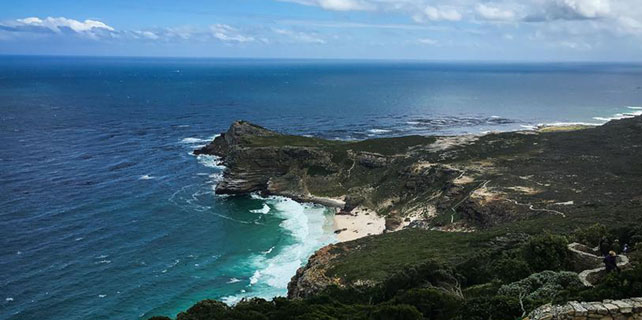The good, bad and ugly on climate change in the US
What happened in the past two weeks has highlighted both the US' leadership and its loss thereof on the climate change front.
First it was the release of the documentary An Inconvenient Sequel: Truth to Power on July 28. Former US vice-president Al Gore inspired the world in 2006 with An Inconvenient Truth, which won two Academy Awards and helped him win the 2007 Nobel Peace Prize.

In the follow-up film, An Inconvenient Sequel: Truth to Power, Gore continues to warn people of the dire fallout of climate change and also offers hope because of increasing global action, such as the historic Paris climate agreement of 2015.
As an admirer of Gore's work, I was a bit upset watching the movie in the AMC Loews Georgetown, because of the poor attendance in the theater.
I had hoped that such a serious movie would have a box office better than the action movie Wolf Warriors II, which took in close to $6 billion in China in 16 days.
After all, 56 percent of Americans named climate change as a major threat to their country, trailing only the Islamic State group, according to a Pew survey released on Aug 1. But why are they indifferent to the movie?
The Obama administration played a critical role in rallying the world in concluding the Paris Agreement, including teaming up with China, and the two countries played exemplary roles in securing the December 2015 agreement.
However, US President Donald Trump has been busy reversing course. On June 1, he announced the world's superpower would withdraw from the accord.
On Aug 4, his administration, through its US Ambassador to the United Nations Nikki Haley, submitted a letter to UN Secretary General Antonio Guterres officially informing him of the US' decision, though still leaving the door open for US re-engagement if the terms improve.
Under Obama, the US pledged to reduce greenhouse gas emissions by up to 28 percent over the 2005 levels by 2025. But Trump regards that as bad for the US economy and jobs, and he apparently wants to lower the target.
Trump appointed climate change doubter Scott Pruitt as director of the Environmental Protection Agency and proposed to cut the EPA's budget by a third. Right after taking office, he signed executive orders to revive the controversial Dakota Access and Keystone XL oil pipelines.
He also signed an executive order that aims to rescind Obama's Clean Power Plan that caps the amount of greenhouse gases from power plants.
The bizarre news last week was that the US Agriculture Department has advised employees to avoid the term "climate change" and "climate change adaption" and instead use "weather extremes" and "resilience to weather extremes".
Meanwhile, a draft government report on climate change is awaiting the Trump administration's approval. In the report, scientists from 13 federal agencies conclude that people in the US are already feeling the effects of climate change, primarily due to human activities.
Just as people talk about the military threat by North Korea on the US Pacific Ocean island territory of Guam, a 2012 study by the American Security Project found that Guam's military installations were among the five most vulnerable American ones worldwide to coastal erosion, extreme weather, rising sea levels and other projected climate change impact, according to a New York Times report on Friday.
There is a fierce tug of war going on in the US on the climate front.
While the Trump administration is reversing course, people such as California Governor Jerry Brown have stepped up.
Brown, New York Governor Andrew Cuomo and Washington Governor Jay Inslee announced in June the United States Climate Alliance, committing US states to uphold the Paris Agreement.
Brown talked with President Xi Jinping and German Chancellor Angela Merkel about cooperation on climate change right after Trump's announcement to withdraw from the Paris accord. Brown praised Xi for his leadership when talking on NBC's Meet the Press last week.
China has made a great leap forward in developing clean and renewable energy in recent years, becoming by far the world's top renewable-electricity producer. Yet that is just the first step in the long march to tackle the country's severe pollution and to embark on a sustainable path of "clear waters, lush mountains" (lvshui qingshan)in Xi's words.
Despite the setbacks in the US, China remains determined and unwavering on addressing climate and pollution issues.
Contact the writer at chenweihua@chinadailyusa.com
















